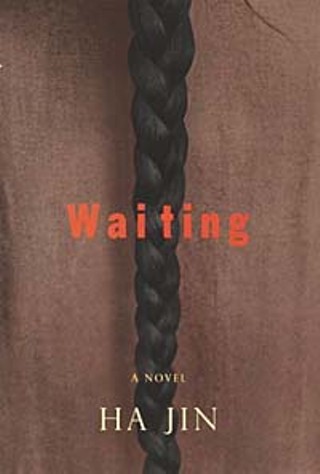Waiting: A Novel
Reviewed by Lissa Richardson, Fri., Dec. 3, 1999

Waiting: A Novel
by Ha JinPantheon, 320 pp., $24
The winner of the recently announced 1999 National Book Award for Fiction, Ha Jin surprised critics by beating, among others, Kent Haruf's compassionate and moral Plainsong. Yet Jin earns the prize few expected he would get. Waiting has that mythical veneer of exotic lands and universal conflicts that makes it immensely appealing. Set in Communist China, the story unfolds between a town called Goose Village and an army hospital, where the grounds are covered with aspens and the city nearby seems very far away. Like any good hero, Dr. Lin Kong must pass certain trials in order to marry the woman he loves. Yet underneath the novel's mythical framework, the narrative voice is unstintingly realistic, depicting a totalitarian regime that makes it difficult for the characters to maneuver toward happiness.
Choice is central to the story. Dr. Lin Kong loves a nurse who works with him at the army hospital in the city of Muji. Manna Wu, the nurse, seems to be the perfect wife for him: She is intelligent, cultured, well-mannered, and totally devoted to him. More importantly, she is a woman whom he chooses to love; early in their relationship, Kong thinks of her as his kindred spirit. He thinks, "She was his woman, the only one he had ever had deep feelings for." Their love, however, is forbidden by law. Under the army's laws, unmarried men and women cannot be alone together outside of the hospital grounds. Affairs are not tolerated; breaking the rules can break one's career. In a way, tradition keeps them from breaking the laws. Kong is too respectful of Manna and too influenced by authority to consummate their affair.
Kong cannot marry Wu because he is already married. In the old-fashioned way, his parents arrange a marriage for him to a woman who, Kong thinks, is unfit to be the wife of a city doctor. Shuyu has bound feet, the ancient debilitating practice that once was erotic but now, to a modern man like Kong, is shameful. She is uneducated, simple, and worn from years of labor. Shuyu lives in Goose Village, Kong's provincial boyhood home, while he lives in the city. He visits her once a year, and on each visit, he pressures her to agree to a divorce. Kong doesn't hate Shuyu, but he doesn't love her, and he believes that he deserves happiness with a woman he loves: "He wanted a marriage based on love and a wife whose appearance wouldn't embarrass him in the presence of others (to his mind, Manna would be a fine choice)." Each year, Shuyu agrees to a divorce but changes her mind at the courthouse. Again, both laws and tradition are against Kong's desires. Both spouses have to agree to divorce, and even then that divorce must be granted by a court system that frowns upon separation.
Kong's struggles between tradition and modernity and his patience to wait for change (in part because he is afraid to act quickly) are unmistakably allegorical for 20th century China. While the message is pointed, what is wonderful about the allegory is that the underlying struggles of the main characters have little to do with power and ideology and everything to do with the human condition and human capacity for love.









